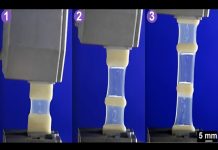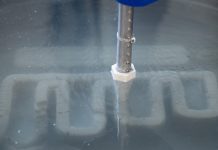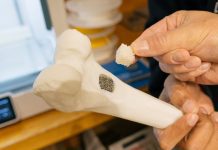
A report from SmarTech Analysis indicates that revenue opportunities for polymer additive manufacturing within the automotive industry will reach USD $2.7 billion by 2030.
Materials, hardware, tooling, and end-use parts will drive this growth. The move towards scaling up capacity for direct part production is also expected to be a key factor
The Market for Additive Manufactured Polymer Automotive Parts: Europe and North America Regions covers the adoption and usage of commercialized polymer 3D printing technologies and associated materials such as photopolymerization, material extrusion, and powder bed fusion.
To understand technology adoption trends, specific technology types will carefully analyze these technology segments.
The report from SmarTech Analysis consists of a review of the present automotive state in terms of 3D printing and analyzes the opportunities of 3D printing in connection to trends that will have a significant impact on automotive manufacturing and supply chains within the period that the forecast covers.
Included in this report is an eight-year forecast of polymer 3D printing hardware and materials, with breakouts by North American and European regions and discrete technology
The report indicates the revenue opportunity in the coming decade for the production of end-use parts and production support assets like fixtures, jigs, assembly aids, and tooling within the automotive manufacturing supply chain.
Key Aspects From the Report:
1. With European automakers such as BMW, Volkswagen, Daimler Benz, and PSA leading in investments into 3D printing for direct production and production support, Europe is expected to have higher AM hardware and materials revenue than the North American Region.
2. A boost in high-volume direct part production is expected to have significant growth. It is at $80 million in 2022.
3. The automotive manufacturing industry faces a significant reconfiguration of the supply chain. 3D printing is being used to support the reconfiguration with the expectation for 3D printed production support assets forecast to achieve a substantial growth up to 6.5 million parts printed in 2030 from 1.5 million assets printed in 2022.
4. Layerless photopolymerization systems and thermal powder bed fusion are helping drive the trend to direct part production within the automotive manufacturing niche.
5. Polypropylene, a commonly used polymer within the automotive production process, is expected to become an important element for revenue opportunity by the end of the forecast period in the PBF segment.
Visit this page and click on “Request Excerpt” to request a sample of SmarTech Analysis’ report.
Image Source: www.facebook.com/SmarTechPub



















